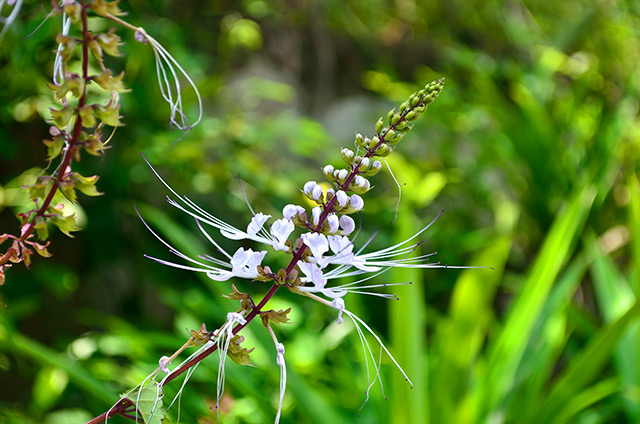Women with PCOS have elevated testosterone levels, less diversity of bacteria
07/17/2018 / By Ralph Flores

According to a recently published study, women who have polycystic ovary syndrome (PCOS) tend to have “less diverse” gut bacteria than women who don’t have the condition. The study, which was published in the Endocrine Society’s Journal of Clinical Endocrinology & Metabolism, was led by researchers from the University of California San Diego School of Medicine, in collaboration with colleagues at Poznan University of Medical Sciences in Poland and San Diego State University.
“The findings indicate women with PCOS tend to have less diverse populations of gut bacteria, a trend which appears to be linked to elevated testosterone levels,” according to Dr. Varykina Thackray, the study’s senior author and an associate professor in the UC San Diego School of Medicine, in an article for Newswise.
Polycystic ovary syndrome (PCOS) is a hormonal disorder that affects most women of reproductive age. Women who have the condition have irregular menstrual periods and have high levels of the male hormone androgen. The ovaries also produce small collections of fluid (follicles) and do not discharge eggs regularly. According to the Hormone Health network, at least seven percent of women that are of childbearing age have PCOS. (Related: Vitamin D fights disease and infertility: New study finds women with PCOS have a higher success rate with vitamin D.)
The etiology of the condition is unknown; however, women with PCOS have an increased risk to develop long-term complications such as Type 2 diabetes and heart disease as a result of their condition. Moreover, the report indicates that two recent studies have also shown a decline in the alpha diversity of the gut microbiome in women with PCOS. The researchers aimed to verify whether these changes in the gut microbiome are linked with specific clinical parameters among women with PCOS. In addition, they also explored if there were other changes in the gut microbiome in women with polycystic ovarian morphology (PCOM) that were not diagnosed under PCOS.
For the study, women from the Poznan University of Medical Sciences were recruited. The researchers then studied fecal swabs from 73 ladies who were diagnosed with PCOS. Their samples were compared with swabs from 48 ladies who did not have PCOS and 42 ladies who had PCOM but did not have the other features of PCOS.
The analysis revealed lower alpha diversity in women with PCOS compared with that of healthy women. Women with PCOM also showed a difference in alpha diversity, but it was in the middle of two groups. Moreover, regression analysis indicated that alpha diversity is inversely related to hyperandrogenism, total testosterone, and hirsutism.
Based on the outcomes, the study proffered that hyperandrogenism could be a factor in changing the gut microbiome in women with PCOS. The authors concluded that further research would determine whether particular gut bacterial species add to the likelihood of a woman having PCOS or it provides potential pathways for treating the condition.
“Our findings suggest testosterone and other androgen hormones may help shape the gut microbiome,” Thackray explained. “These changes may influence the development of PCOS and the impact it has on a women’s quality of life. Additional research is needed to determine whether specific gut bacterial species contribute to the development of PCOS and whether the microbiome offers potential pathways for treating the condition.”
Follow WomensHealth.news to learn the latest about PCOS and other conditions that affect women.
Sources include:
Tagged Under: Endocrine Society, endocrinology, gut bacteria, gut microbiome, metabolic health, microbiome, PCOS, polycystic ovary syndrome, women's health




















